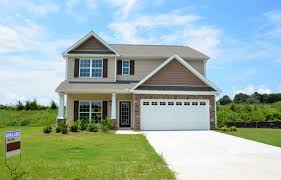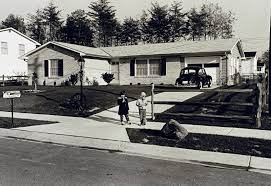INTRO TO REAL ESTATE INVESTING
Investing in Single Family Homes - Pros and Cons

Many investors wonder what kind of property they should invest in. That will vary depending on your experience level and your investing goals. In this article we will examine the pros and cons of investing in single family homes with the goal of helping you decide whether this is the right investment vehicle for you.
Pros of Investing in Single Family Homes
- Good for beginner investors - Single family homes are a great choice for beginning investors for many reasons. One of the biggest reasons is that they are an asset most people are familiar with. Most people have grown up in or around single family homes. They are easy to maintain and they aren't as foreign or complex as commercial real estate or multi-family properties. As a result they are a great starting place for real estate investing. Many people have found success by starting with small starter homes, and then as they get more comfortable with real estate investing they start to buy larger, more complicated properties.
- Good fixer upper candidates - When you buy a single family home you have complete control of any renovations or repairs that need done to the inside or outside of the property (subject to any local HOA restrictions of course). This means you can redo the landscaping, put in a new kitchen, or make any other changes that you think would positively impact the value of the home. As a result, single family homes are great fixer-upper candidates. If you want to make money flipping properties, this could be the right investment vehicle for you.
- Possible tax-free gain - Single family homes can qualify for some significant tax advantages that other property types don't. Perhaps the most notable tax advantage is if you live in a home as your primary residence for at least 2 of the 5 years before you sell it, you don't have to pay capital gains tax when you sell the property. And, the 2 years don't need be consecutive. This tax advantage can save you thousands of dollars if the house has experienced significant appreciation since the time you bought it.
- Favorable depreciation - Another tax benefit you can enjoy is a favorable depreciation schedule. You can depreciate single family homes over 27.5 years compared to commercial real estate that depreciates over 39 years. This means the amount you can deduct from your taxes each year for a single family home investment is larger and more favorable than commercial real estate.
- Longer leases - Tenants of single family home rentals tend to be more stable than tenants of condos, townhomes, or apartments. Often they are families that require more stability than young couples or single people. As a result, single family home investments often enjoy longer leases than other real estate investments. There is a lower turnover rate when compared to condos or multi-family properties. This is great news for you as a landlord because it means you won't have to worry about finding new tenants as often.
- Always in demand - Another advantage of single family homes is that they are always in demand. People always need places to live. As a result they are more resilient against market crashes and other market cycles than commercial properties. For example, when the economy crashes many businesses are forced to close. If you own commercial real estate and your tenant loses their business, you may have a hard time finding a new tenant. However, if you own a single family home and the market crashes, your tenants still need a place to live. The high demand for homes makes them easier to rent, easier to sell, and makes them more stable than most other types of real estate.
- Diversification - When you buy a multi-family property like a duplex or apartment building, all of the units are in the same geographical location, and you buy them all in a single transaction. While this has some advantages, it also has some disadvantages. One of the disadvantages is that you're investment is not diversified. If you choose to invest in single-family homes you buy multiple homes in multiple different locations. This gives you a chance to diversify your portfolio, learn what areas work best for you, and experiment with different options. Additionally, each home is a unique transaction which means you can buy at your own pace. Rather than diving straight into the deep end, you can build your real estate empire slowly and more methodically.
- Favorable financing - It is often easier to get a loan on a single-family home investment property than it is to get a loan on a commercial property. You typically don't need as large a down payment, and it's easier to qualify for. Figuring out how to finance an investment can be a major hurdle for many investors, and investing in single-family homes is a great way to learn the process before attempting to secure more complicated financing.
- Faster appreciation - Another sometimes overlooked advantage of single-family home investing is that these homes tend to appreciate faster than multi-family properties. This is in large part to their high demand. If you're considering investing in a property long-term, single-family homes are a great investment vehicle.
- Utilities are a tenant responsibility - It is quite common to have renters in single-family homes manage and pay the utilities themselves. This means you have one less thing to worry about as the landlord.
Cons of Investing in Single Family Homes
- Property maintenance - As the property owner you want to be sure your investment stays clean and nice. However, maintenance can quickly become a burden. Particularly for single-family homes with no HOA. Landscaping tasks can eat up a lot of your time if you're not careful. As a result, if you can, it is often a good idea to include a landscaping maintenance contract when you rent out a property. This will make it so your tenants are responsible for maintaining the yard and property. Often you can offer a slight rent on discount for managing these maintenance tasks themselves.
- Eviction - If you find yourself with a bad tenant, perhaps due to an inability to pay rent, or some other disagreement. It can often be very difficult to have them evicted. This is particularly true for single-family homes because the tenants are often families. It can be emotionally difficult to evict a family with young children, especially if you know they may struggle to find a new place to live. As a result, always be careful and selective with the tenants you choose. Do your best to avoid situations where you may need to evict someone.
- Vacancy - Another issue with single-family homes is they are occupied by a single family. This means your rental is either 100% occupied or 100% vacant. Unlike a multi-family property, when a tenant moves out, it becomes solely your responsibility to make the mortgage payments until you find a new tenant. This can be a challenge for many people. If you decide to invest in a single family home, make sure you have sufficient cash reserves to handle a vacant property.
- Can't scale as quickly - When investing in single-family homes each transaction only buys one property. This means it takes a lot longer to accumulate multiple properties, and you can't scale your real estate portfolio as quickly as if you were buying multi-family properties. To build a large portfolio of single-family properties requires higher search costs, transaction costs, and opportunity costs than other types of real estate. This is because you will need to research each property individually, pay the closing costs for each property individually, and manage each property individually. You can experience higher costs in other areas too. For example, if you decide to hire a property manager you may discover they charge higher rates to manage single-family homes than multi-family homes because it is less convenient for them. If your investing goal is to build a large estate you may need to choose a more efficient and scalable type of real estate.
My hope is that after reading this article you have a much better idea of whether single-family homes are the right real estate investment vehicle for you or not. And if so, I would encourage you to take action with what you've learned.

